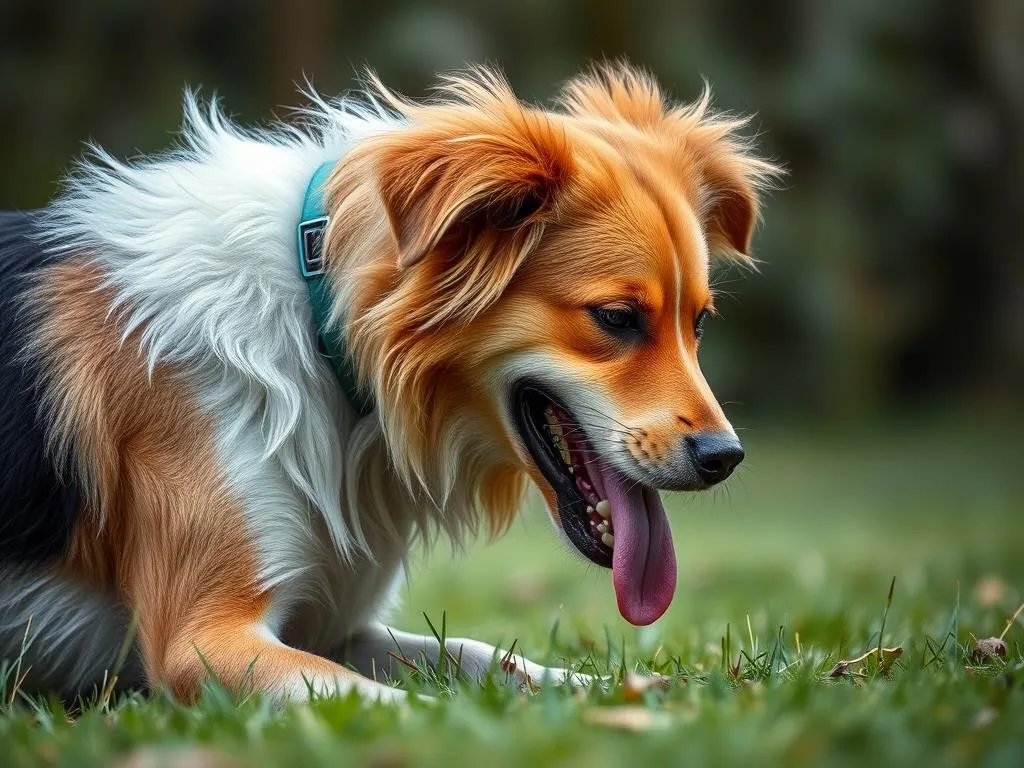
Understanding dog behavior is essential for any dog owner. Dogs communicate in various ways, and one of the more perplexing behaviors is when a dog decides to urinate on another dog. This action can raise eyebrows and prompt many questions. So, why does dog pee on other dogs? Let’s delve into the intricacies of canine urination to uncover the reasons behind this behavior.
Understanding Dog Urination
Overview of Canine Urination
Urination is a natural biological function for dogs, serving multiple purposes beyond mere elimination. Dogs urinate for several reasons, including:
- Normal Urination: This is simply the act of relieving themselves.
- Submissive Urination: Often a sign of submission, usually seen in younger dogs or those that might feel threatened.
- Marking: Dogs use urine to establish territory and communicate with others.
The biological function of urination in dogs goes beyond just getting rid of waste; it also plays a crucial role in social interaction and territoriality.
Factors Influencing Urination
Several factors can influence how and when dogs urinate:
- Age and Breed Differences: Younger dogs and certain breeds may be more prone to specific urination behaviors. For example, puppies often experience submissive urination, while certain breeds may have stronger territorial instincts.
- Health-Related Issues: Conditions such as urinary tract infections or incontinence can lead to increased urination frequency or inappropriate urination. If you notice changes in your dog’s urination patterns, consulting a veterinarian is essential.
Why Dogs Pee on Other Dogs
Social Behavior and Communication
One of the primary reasons why dogs pee on other dogs is to communicate. This behavior is often tied to social structures and territoriality.
- Marking Territory: Dogs are territorial animals. By urinating on another dog, they may be marking their territory, signaling to other dogs that they claim that space. This is particularly common in areas where multiple dogs interact, like parks.
- Social Hierarchy: Urination can also indicate a dog’s status within a social hierarchy. A dominant dog may urinate on a submissive dog to assert its position, while a submissive dog may urinate as a way of showing deference.
Stress and Anxiety
Another factor influencing why dogs pee on other dogs is stress or anxiety.
- Submissive Urination: This type of urination occurs when a dog feels threatened or anxious. It is more commonly seen in younger dogs or those that have had negative experiences with other dogs or humans. If a dog is approached by a more dominant or aggressive dog, it might urinate as a way of showing submission.
- Signs of Stress in Dogs: Dogs that are anxious may exhibit other behaviors alongside urination, such as cowering, whining, or attempting to hide. Recognizing these signs can help owners address the root of the problem.
Reproductive Behavior
Reproductive behaviors can also play a role in why dogs pee on each other.
- Mating Behavior: During mating season, female dogs may urinate more frequently, and male dogs may respond by urinating on them to signal their interest. Hormonal changes can lead to an increase in marking behaviors as dogs seek to attract potential mates.
- Pheromones in Urine: Dogs’ urine contains pheromones that convey information about their reproductive status. By urinating on another dog, they might be sending signals about their availability or social status.
When is it a Problem?
While urination can be a normal behavior, it becomes problematic in certain situations.
Excessive Urination
- Indicators of a Behavioral Issue: If a dog urinates excessively, it may signal a behavioral issue rather than just a natural instinct. Look for signs such as frequent urination in non-marking situations or urination indoors despite being trained.
- Potential Health Concerns: Excessive urination can indicate health issues, including diabetes or kidney problems. If the behavior is sudden or accompanied by other concerning symptoms, a veterinary consultation is necessary.
Impact on Dog Interactions
The act of urinating on another dog can significantly affect social dynamics among dogs and their owners.
- Social Implications: Constant urination can lead to misunderstandings between dogs, potentially resulting in fights or aggressive encounters. Other dogs might respond negatively to being urinated on, leading to social isolation for the offending dog.
- Owner Reactions: Many owners may misinterpret their dog’s urination behavior, thinking it’s purely a sign of dominance or aggression. Understanding the context is crucial for managing the behavior appropriately.
How to Manage and Correct This Behavior
Managing and correcting urination behavior in dogs requires a combination of training and environmental adjustments.
Training Techniques
- Basic Training Commands: Teaching your dog basic commands can help establish boundaries and improve communication. Commands such as “leave it” or “no” can be helpful when attempting to redirect inappropriate urination.
- Counter-Conditioning: This technique involves changing a dog’s emotional response to a trigger that causes them to urinate. If your dog urinates due to anxiety when meeting other dogs, gradually introducing them to positive experiences can help.
Environmental Management
Creating the right environment can significantly reduce urination issues.
- Creating Safe Spaces: Ensure that your dog has a safe and secure area to relax. Reducing stressors, such as loud noises or aggressive dogs, can help alleviate the need to mark territory.
- Controlled Introductions: When introducing dogs, do so in a controlled manner. Allow them to meet in neutral territory and give them time to acclimate to one another. Avoid overwhelming situations that may lead to anxiety.
Professional Help
Sometimes, addressing urination behavior requires professional intervention.
- When to Seek a Trainer or Behaviorist: If your dog’s urination issues persist despite your best efforts, seeking the guidance of a professional trainer or behaviorist may be necessary. Signs that you should seek help include frequent accidents, aggressive behavior, or stress-related urination.
- What to Expect from Professional Guidance: A qualified professional can assess your dog’s behavior and develop a tailored training plan. They may use positive reinforcement techniques to address the underlying causes of the urination behavior.
Conclusion
Understanding why dogs pee on other dogs can help owners manage and mitigate this behavior effectively. The reasons range from social communication and marking territory to stress and reproductive behaviors. By recognizing the signs and implementing appropriate training and management strategies, you can ensure a more harmonious relationship between your dog and others.
Patience and understanding are key as you navigate your dog’s behavior. Every dog is unique, and what works for one may not work for another. Observing your dog’s behavior closely and seeking help when needed can lead to a more enjoyable and fulfilling experience for both you and your furry friend.









